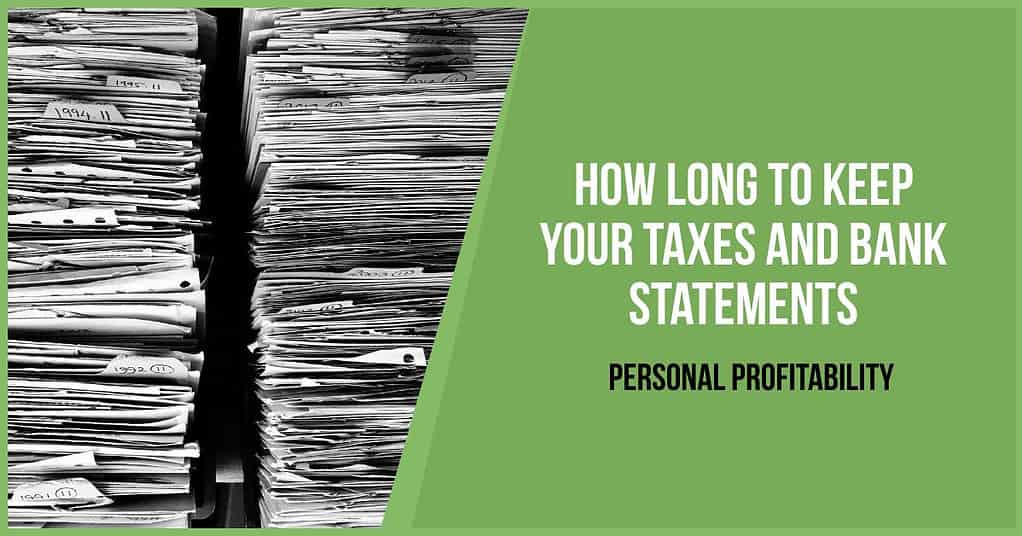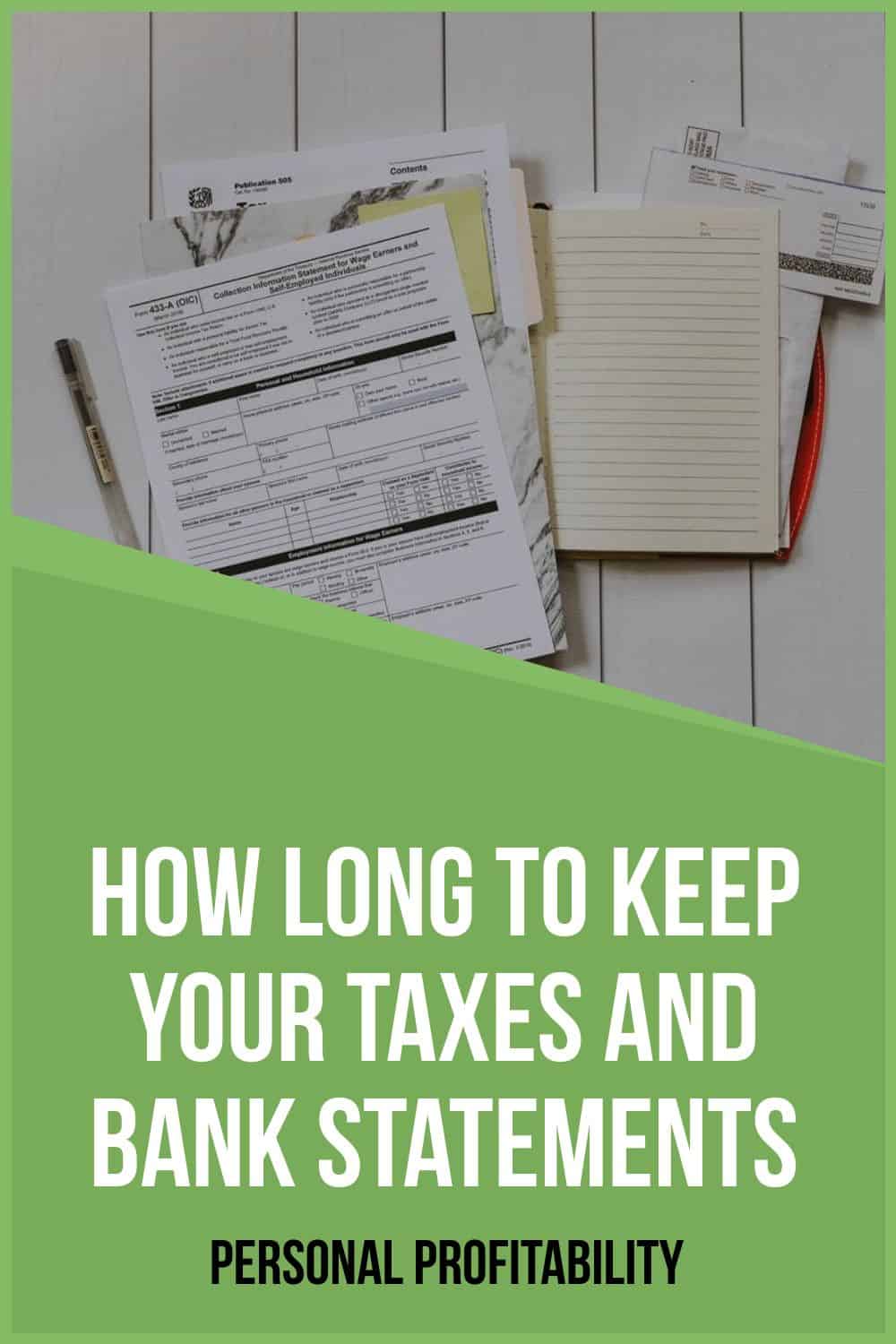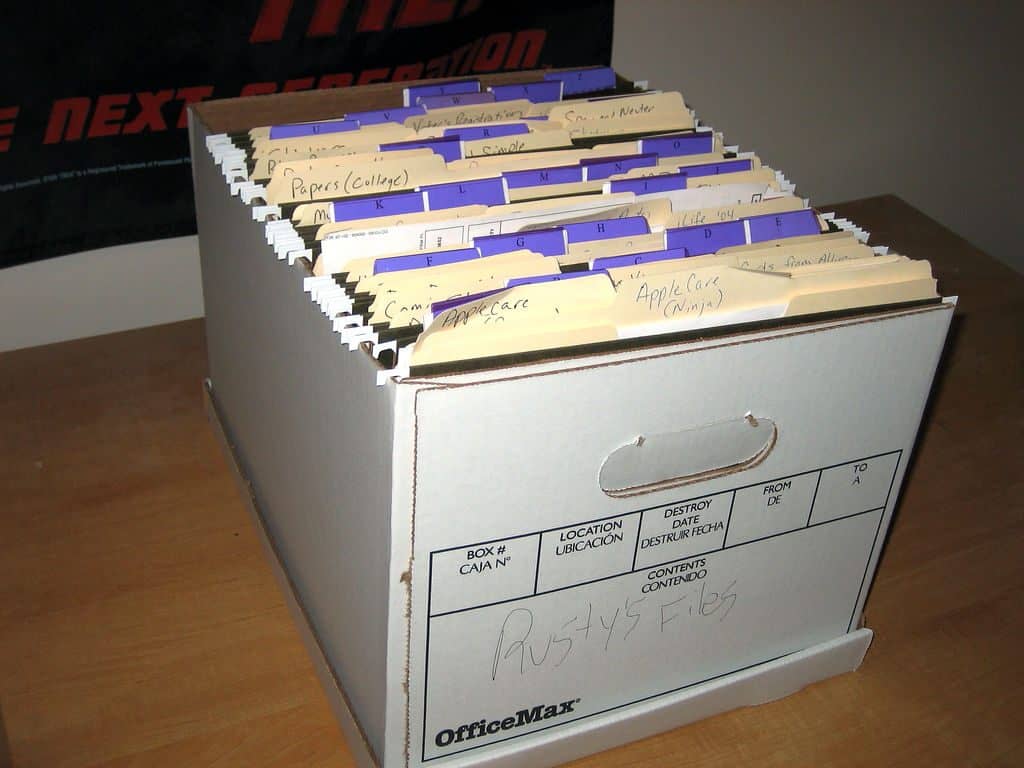I have a file cabinet at home with bank statements dating back to when I opened my first checking account when I was sixteen years old. Nine years later, I wondered if I still need those bank statements. I also have every tax return I have filed, ever. Do I need those? I did some digging and found the answers.

Tax Returns
You need to keep all documentation around your taxes for a minimum of seven years. The statute of limitations for the Internal Revenue Service (IRS) to come after you for back taxes is three years, so that is where the minimum comes from. However, if you have failed to report income, the statute of limitations is six years. To cover yourself, it is best to have a seven-year record of taxes. Just to be safe, it is probably a good idea to keep your form 1040 and record of payment to the government for life, but you do not need the backup documents for more than seven years.
I personally have all of my tax statements and files ever done in both paper and electronic (on a CD) format.
Bank Statements
Did you give a charitable contribution or make a business expense payment on your credit card or bank account statement? If you ever have to show proof of a deduction to the IRS, you need that statement. Like tax returns, keep them for about seven years.
I have scanned all of my old bank statements and keep them on both an external hard drive and my Dropbox. My newer statements from the last year are available from my bank website and backed up to my FileThis.
Brokerage Statements
The best advice I can find here is to keep your year-end statements and trade confirmations indefinitely, but you don’t need to keep your monthly statements for more than two or three months in case you find any errors. When you sell a security, you have to be able to prove the original cost for capital gains taxes. That is why you need your year-end statements so long.
I have all of my older brokerage statements on both my external hard drive and Dropbox. Newer statements are available on my brokerage website and my FileThis account. I also keep paper copies of my year-end statements in my file cabinet.
Retirement Plan Statements
To make sure you are safe if you ever have to withdraw principal (not interest earned) from a Roth or other retirement account, you have to be able to prove what you put in and when you put it there. That means you need to keep retirement statements until you are at a point when you can withdraw tax-free. For many of us, that means 40 years or so of records.
I have copies of these statements on both the brokerage website and Dropbox via FileThis. Like my stock brokerage statements, I also keep hard copies of my year-end statement in my file cabinet.
Utility Bills
If you have a long record of cell phone, power, or other utility bills lying around, you can free up that space today. You don’t need more than two or three months of history that can demonstrate that your payment was sent and received. Once your account is correct, toss it in the shredder.
I pay all of my utilities through my HOA, so I don’t have any utility bills. My cell phone and internet bills are backed up in case I ever need them.
Insurance Papers
If you have any records of claims and policy details, keep them as long as you have the policy. If you do not have proof and you ever have to challenge your insurance company, you need to have records or it never happened. For health insurance, make sure you have evidence of coverage so you are never hit by a pre-existing condition clause (while that is still legal).
I have hard copies of my most recent policy in addition to online access via Dropbox. It is important to have quick access to your insurance documents in case you ever have a fire or other disaster. I have never had a homeowner claim and I have hard copy records of all auto claims for my current car. It is also a good idea to keep a copy in a safe deposit box if you have one.
Paper or Electronic Records?
For most everything, I use Dropbox with FileThis as my online file cabinet. FileThis is a free service that automatically downloads your financial statements and bills as PDF files each month. I can log in any time and grab documents over one year old (when I signed up). When I needed statements for my recent mortgage refinance, I was able to find everything I need, download the files, and send them to the bank in minutes.
For older files, I scanned them and keep copies on both an external hard drive and my Dropbox. Dropbox is a free cloud storage service that I use every day to keep files I need regularly on multiple computers and for backups of my cell phone pictures. It is important to make sure electronic copies are safe from hackers and hard drive crashes.
So, what do you use for record-keeping? What are your plans and strategies? Please share in the comments.
Originally published May 17, 2010. Updated on January 25, 2022. Image by fuzzcat / flickr.



The advent of cloud storage makes it so much easier. I have a ton of paper files from the past, as that was the way it was done. Now, one can save online with less hassle. I’d say it’s good to target a mix these days.
I found an old checkbook from well over a decade ago, which I ended up keeping – just for sentimental value. That’s where it all got started!
I totally agree! Storing on Dropbox and Manilla has completely changed how I deal with my statements. I also like having a network attached storage (NAS) hard drive at home for backups I can take with me.